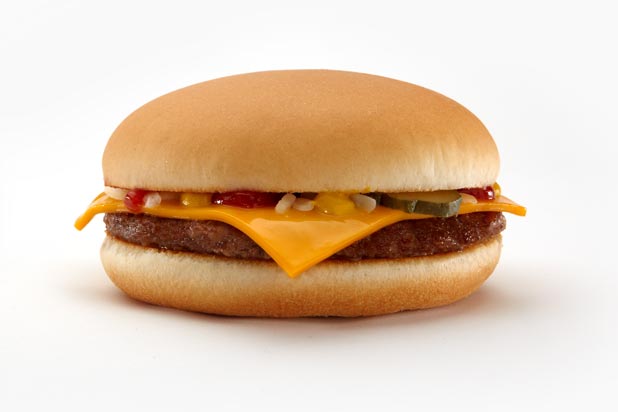9 Scary-Sounding Chemicals Lurking In Your Fast Food
We all know that fast food is, for the most part, anything but "natural." Not only does it need to have an extraordinarily long shelf life, it also needs to taste as good as it possibly can by the time it reaches your table. And unfortunately, the only way to guarantee that is by adding some frightening-sounding chemicals.
9 Scary-Sounding Chemicals Lurking in Your Fast Food (Slideshow)
Just about every processed food item contains additives, and while they might have long names that would be more at home in a chemistry textbook than a cookbook, their reasons for being in these foods is fairly easy to explain. For example, sodium benzoate, which can be found in everything from soft drinks to McDonald's chipotle barbecue sauce, inhibits the growth of mold and yeast, so it's used as a preservative. Unfortunately, when combined with vitamin C, it creates benzene — a known carcinogen. However, in the small doses found in food, it's generally accepted to be harmless. Still, it's not exactly healthy, and Coca-Cola phased it out several years ago just to be safe.
Even fast food items that we assume don't have loads of chemicals can contain a surprisingly high amount of them. An English muffin from Burger King, for example, contains calcium propionate, potassium sorbate, sodium acid pyrophosphate, monocalcium phosphate, calcium peroxide, azodicarbonamide, and something called caprylic triglycerides. Sounds delicious, doesn't it?
So read on to learn not only what some of the most frightening-sounding chemicals lurking in your fast food are, but what dishes they're most commonly found in, what their primary purposes are, and what, if any, potential health dangers they may pose.
Azodicarbonamide

The infamous "yoga mat" chemical that Subway was forced to remove from their bread earlier this year can still be found in just about every other fast food chain's bread, from the buns at McDonald's and Burger King to Wendy's pretzel buns. Also known as ADA, it's a dough conditioner that, when baked, breaks down to a chemical called semicarbazide that's been found to increase the incidence of tumors when fed at very high levels to female mice, but not male mice or rats. According to the FDA, it poses no threat to humans at the levels it's currently found in food.
Dimethylpolysiloxane

More commonly known as PDMS, dimethylpolysiloxane is a silicon-based synthetic polymer (so plastic, basically) that's used as an anti-foaming and anti-caking agent and emulsifier in processed foods. It prevents deep-fryer oil from foaming, preserving its shelf life — so many fast food companies, including McDonald's, add it to their oil. It's also used to make cosmetics, Silly Putty, shampoos, and industrial oils, but it's non-toxic at the concentration used in fast-food restaurants, 10 parts per million, according to the FDA.
Click here to learn about 7 other chemicals in your fast food.